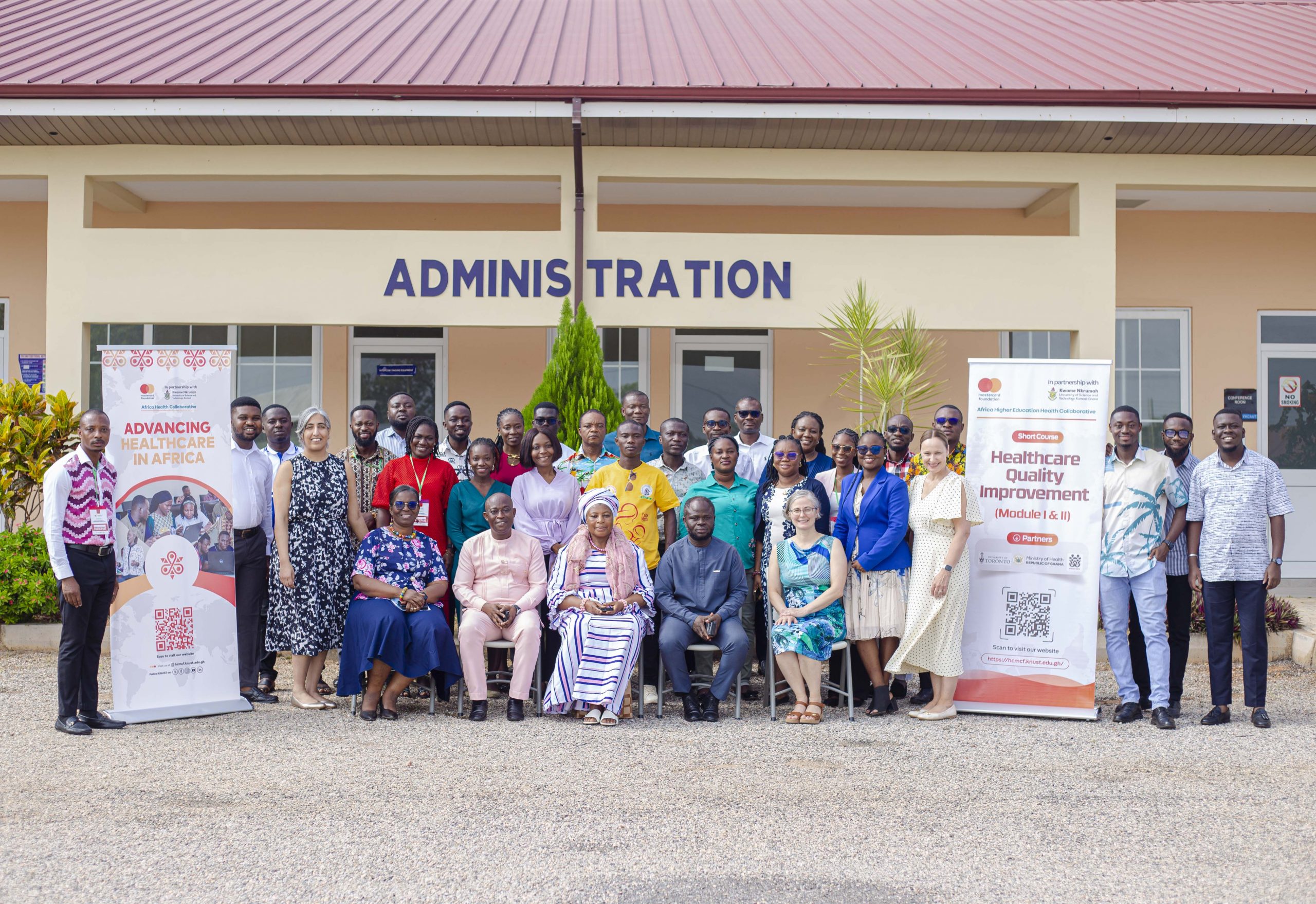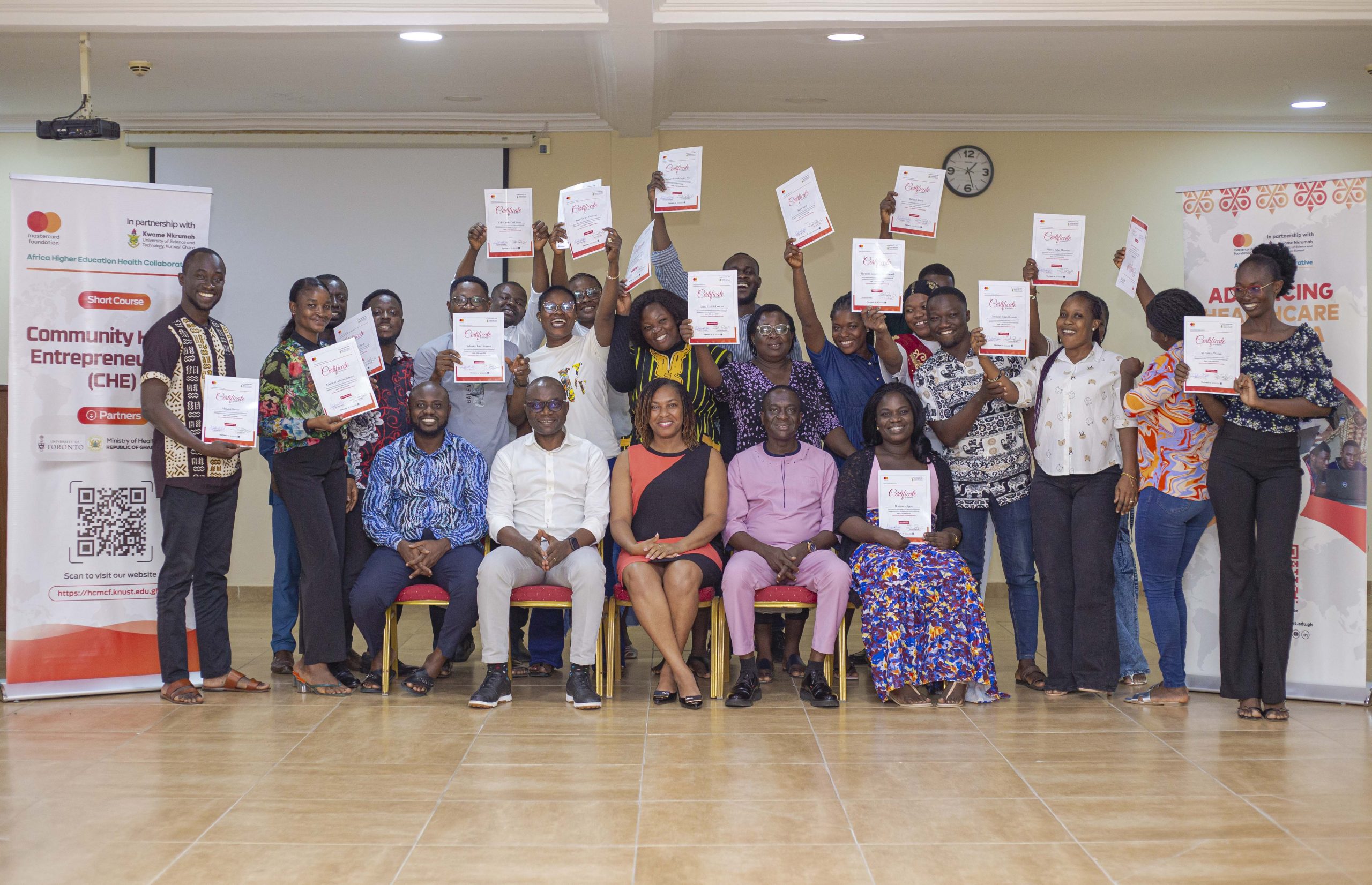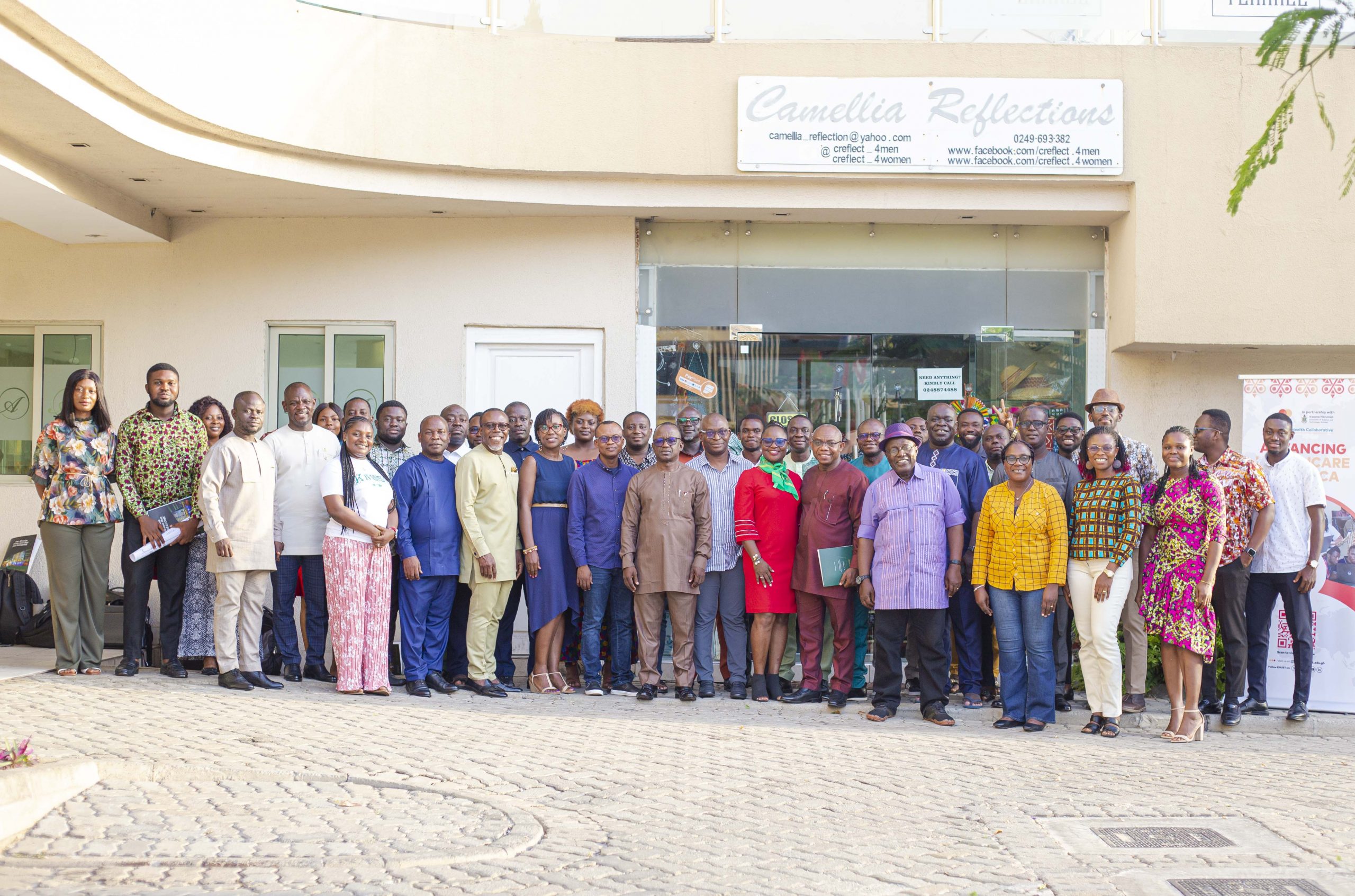Mastercard Higher Education Health Collaborative of the Kwame Nkrumah University of Science and Technology (KNUST) has engaged the relevant stakeholders to validate the designed programme curriculum and training modules expected to empower the next generation of health professionals.
The meeting sought to solicit for inputs from stakeholders concerned to help improve upon the draft documents of the curriculum and training modules.
The pillar lead for Health Entrepreneurship, Prof. Wilberforce Owusu-Ansah who spoke on behalf of the Principal Investigator, Prof. Ellis Owusu-Dabo, entreated the stakeholders to bring on board their industry experience to enrich the curriculum.
Dr. Tweneboah Koduah, who presented on the training modules was hopeful the training will change mind-set of students and health workers to consider starting their own businesses.
“We want to use this training modules for a period of 6weeks to imbibe in students, critical thinking skills, innovation and creativity as well as help them manage their business time work-life balance,” he said.
The Ashanti Regional Director, Ministry of Trade and Industry, Mr Osman Mamuda recommended the creation of internship opportunities with industries.
He suggested a programme dubbed ‘Time with Successful Health Entrepreneurs- a platform where students can learn from health entrepreneurs who have made significant impact in the health sector. He further added that students should be trained on presentation skills to showcase how well they can pitch their business ideas.
Master of Science (MSc.) in Health Entrepreneurship Curriculum
Dr. Joseph Owusu, Pillar lead for Health Ecosystem indicated that this programme is the first of its kind in the sub-Saharan Africa. He stressed that the MSc. Health Entrepreneurship programme is designed to develop health professionals to see health as a business, build their capacity, and to create meaningful employment in the health sector.
Dr. Emmanuel K. Anin, who presented on the Master of Science in Health Entrepreneurship Curriculum was of the view that the programme is key in developing entrepreneurs in the health sector.
“He said this engagement and validation exercise brings the academia and industry together and offers the opportunity to tap into the experience of practitioners to develop a programme that is relevant in the health ecosystem,” he said.
The representatives from the industry were impressed with the course contents of the curriculum. Some of them expressed their interest in enrolling on the programme.
The Ashanti Regional Director, Ministry of Trade and Industry, Mr. Osman Mamuda indicated the need for periodic review of the contents during reaccreditation to meet the changing needs of the industry.
A representatives from the Ministry of Employment and Labour Relation and Ministry of Health, Mr. Daniel Sakyi Asiedu and Mr. Lawrence Odarty Lawson respectively, suggested that an International Health Services course should be incorporated into the course content to expose students to international standards of health services and practices.




